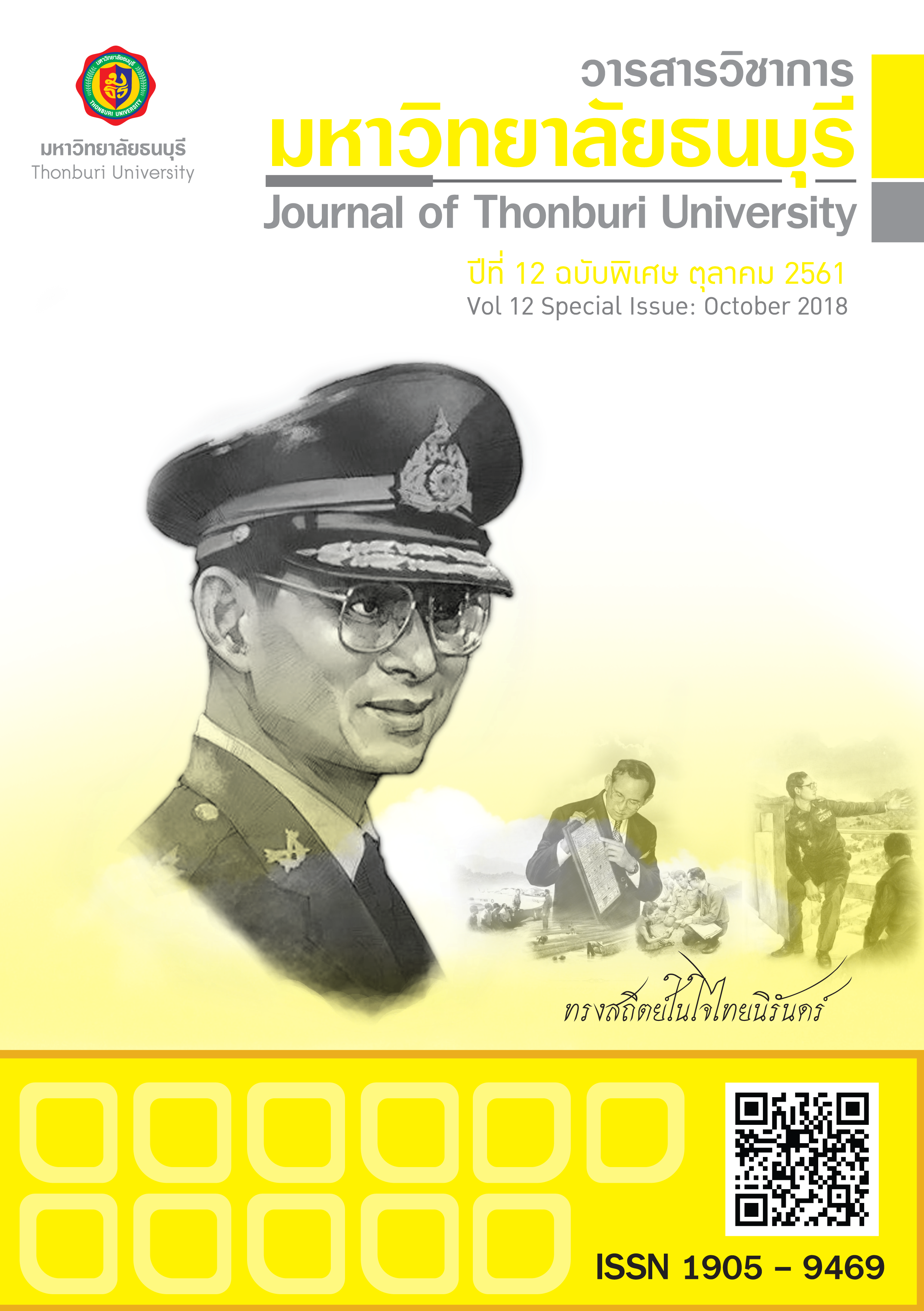EVALUATION COMMUNITIES DEVELOPMENT STRATEGY PLAN TO PRACTICE WITH RESPONSIVE EVALUATION MODEL APPROACH
Keywords:
Strategic Plan, Community Development, Responsive Evaluation ModelAbstract
Abstract
This study to evaluate the implementation of the strategic plan of the Department of Community Development, B.E. 2560-2564. Robert Stake's responsive evaluation model was used as a model for evaluation. Sample selection using multi-stage random sampling. Randomly selected provinces, districts, and villages and using purposive sampling the staff in the area and the people who were the target group of the projects including administrators and staff at the Department of community development. The results showed that all five projects are very efficient because the project was in accordance with the plan and people are very satisfied. The projects were effectiveness and pass the indicators criteria exceed 80% composed of the career community-based promotion program, Thai community market help Thai people smile program and human resources development project to drive the economy at the district level. The projects did not pass the criteria of effectiveness evaluation because the project was in process. The impact of all projects had more positive impact than negative. It was worth for social, economic and environmental. The suggestions of the evaluation were as follows. The project should be supported appropriately with the needs of each area under three support systems: knowledge, information systems and networking with participatory processes. Next research should be done to validate “A model for driving a strategic plan for community development”.
Keywords: Strategic Plan, Community Development, Responsive Evaluation Model
References
ณัฏฐารัตน์ หาญศรี. (2560). การออมของครัวเรือนฐานรากในประเทศไทย. สืบค้นเมื่อ 30 กรกฎาคม 2560, https://www.gsb.or.th
รัตนะ บัวสนธ์, สําราญ มีแจ้ง, สายฝน วิบูลรังสรรค์; และ ปุณิกา ศรีติมงคล. (2556). การพัฒนารูปแบบการประเมินผลการปฏิบัติงานอิงสมรรถนะ ของอาสาสมัครสาธารณสุขประจําหมู่บ้าน. วารสารวิทยาการวิจัยและวิทยาการปัญญา. 10 (2): 96-107.
รัตนะ บัวสนธ์. (2560). ชุมนุมวิชาการด้านการวิจัยและประเมินผลทางการศึกษา “การประเมินแบบมีส่วนร่วมและการประเมินแบบอาศัยฐานผู้เกี่ยวข้อง” สืบค้นเมื่อ 10 มีนาคม 2560 จาก http://www.rattanabb.com/modules.php?name=News&file.
วชิราภรณ์ สุรธนะสกุล, ศรเนตร อารีโสภณพิเชฐ; และ อัจฉรา ไชยูปถัมภ์. (2559). รูปแบบการเสริมสร้างความเข้มแข็งของชุมชนโดยวิทยาลัยชุมชน. สืบค้นเมื่อ 30 กรกฎาคม 2560 จาก https://research.dusit.ac.th.
ศิริชัย กาญจนวาสี. (2552). ทฤษฎีการประเมิน. กรุงเทพฯ: สำนักพิมพ์แห่งจุฬาลงกรณ์มหาวิทยาลัย.
สมหวัง พิธิยานุวัฒน์. (2549). วิธีวิทยาการประเมินศาสตร์แห่งคุณค่า. กรุงเทพฯ: สำนักพิมพ์แห่งจุฬาลงกรณ์มหาวิทยาลัย.
Christina A. Christie; & Marvin C. Alkin. (2013). An Evaluation Theory Three in Marvin C. Alkin editor, Evaluation Root A Wider Perspective of Theorists’ Views and Influences. 2nded. Sage.
Robert E. Stake. (1975). To Evaluate an Arts Program. Evaluation the Arts in Education: A Responsive Approach. Merrill, Colombus: OH. 13-31.
Robert E. Stake. (2004). Standards–Based & Responsive Evaluation. Sage.
Translated Thai References
Buason, R. (2017). Academic conference in Educational Research and Evaluation “Participatory Evaluation and Stakeholders base Evaluation” Retrieved from March 10, 2017, http://www.rattanabb.com/modules.php?name= News&file (in Thai).
Buason, R., Meejaeng, S., Wibulrungsun, S., and Sritimo ngkol, P. (2013). Development of Performance based on Performance of the Village Health Volunteers Evaluation Model. Journal of Science and Research Intelligence. 10 (2): 96-107. (in Thai).
Hansri, N. (2017). Savings of Home Foundations in Thailand. Retrieved from July 30, 2017, https://www.gsb.or.th (in Thai)
Kanjanawasri, S. (2009). Theory of Evaluation. Bangkok: Chulalongkorn University press. (in Thai).
Pitiyanuwat, S. (2006). The Science of Value Evaluation Methodology. Bangkok: Chulalongkorn University Press. (in Thai).
Rakchatjarern, K., Chantanothai, D., Intachim, J.;& Saengkrajang, M. (2016). Key Success Factors to Drive a Resolution National Health Assembly to Practice. Bu Academic Review. 15 (2): 23-33. (in Thai)
Surathanasakul, V., Areesophonpichet, S.;& Chaiyupathum, A. (2016). Strengthening Community Model by Community College. Retrieved July 30, 2017 from https://research.dusit.ac.th (in Thai).







